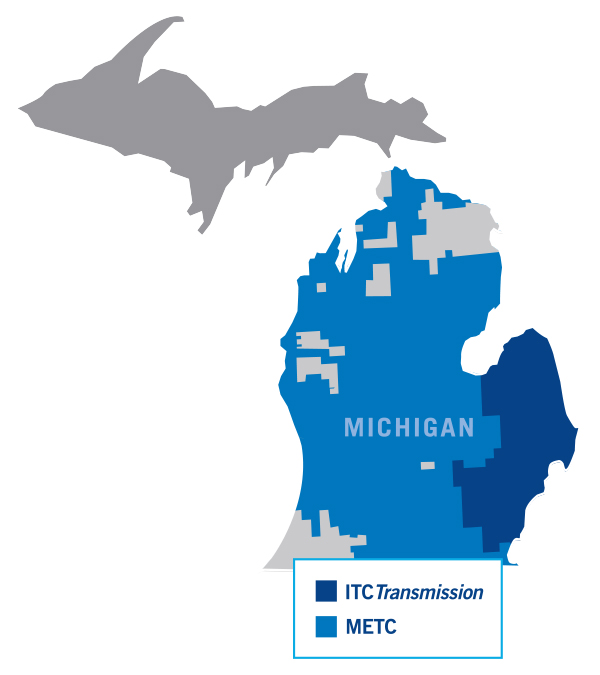
LANSING, Mich. — Legislation granting incumbent transmission owners the right of first refusal to build and operate transmission lines in Michigan is on its way to Gov. Gretchen Whitmer (D) for signature after winning final legislative approval.
SB 103, which would benefit ITC Holdings and American Transmission Co., was sent to Whitmer by the Michigan Senate Thursday after the House approved the bill in a 71-29 vote late Wednesday.
Whitmer’s administration has said nothing about the legislation, which had bipartisan sponsors, including Democratic Sen. Curtis Hertel Jr., who succeeded Whitmer in the Senate. It was opposed by only a few Democrats.
Most of the 29 opponents in the House were the most conservative of the majority Republicans. The most conservative Republicans opposed the bill in the Senate, which is also controlled by Republicans.
 ITC Holdings’ ITC Transmission and Michigan Electric Transmission Co. serve most of Michigan’s Lower Peninsula through a network of about 8,700 circuit miles. The companies have made $5.5 billion in capital investments in the state since 2003. | ITC Holdings
ITC Holdings’ ITC Transmission and Michigan Electric Transmission Co. serve most of Michigan’s Lower Peninsula through a network of about 8,700 circuit miles. The companies have made $5.5 billion in capital investments in the state since 2003. | ITC HoldingsThe bill was unchanged by the House from the version passed in the Senate in October. (See Mich. Senate OKs Transmission ROFR for Incumbent TOs.)
The bill would apply to “regionally cost-shared” transmission projects, such as those resulting from MISO’s Transmission Expansion Plan. It takes advantage of the exception under FERC Order 1000 that allows states to create a ROFR. The order prohibited such rights in tariffs filed with the commission in a bid to create competition, although some incumbents have recently urged FERC to reverse the prohibition in the commission’s Advance Notice of Proposed Rulemaking proceeding. (See FERC Tx Inquiry: Consensus on Need for Change, Discord over Solutions.)
With the legislature pushing to finish the 2021 session this week, the House Energy Committee reported the bill on Tuesday, and it was rushed through its final readings on the House floor before passing. There was no debate on the bill in the House.
John Dulmes, executive director of the Michigan Chemistry Council, blasted the legislation, calling Michigan’s electric costs a major barrier to attracting investments and jobs. “That’s why it is disappointing to see today’s vote to support the interests of a monopoly energy company instead of ratepayers. Our policymakers need to get serious about competitive energy policies and the high bills paid by our businesses and residents,” Dulmes said in a statement.
The state’s utility costs — some of the highest in the region — were cited as a reason Ford Motor Co. (NYSE:F) announced in September it was locating a major new electric vehicle factory in Tennessee.
The Chemistry Council was one of only a few vocal opponents to the bill. The measure was backed by as many as a dozen groups, including labor groups and the Michigan Chamber of Commerce.
When the bill passed the Senate, the chief sponsor Sen. Wayne Schmidt (R ), said the state’s efforts to reduce carbon emissions through electrification will require more transmission in the state. The bill will help ensure a more orderly system to develop transmission, he said.
Whitmer will have 14 days to sign or veto the measure once she receives the proofed and printed version of the bill.
